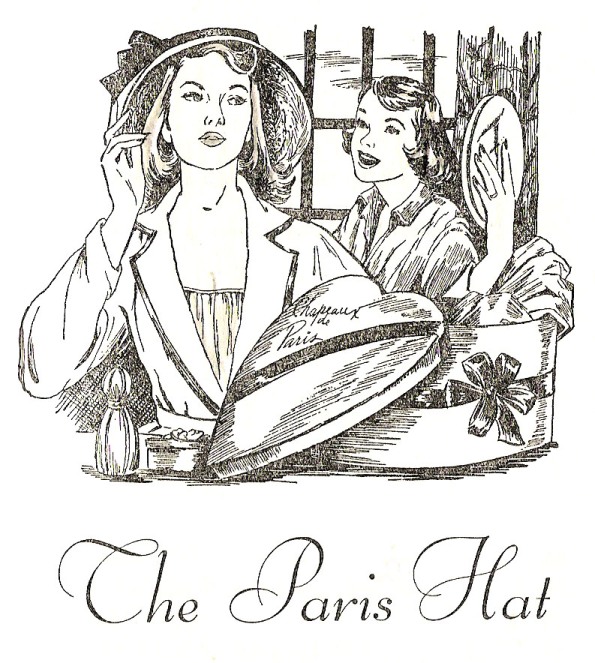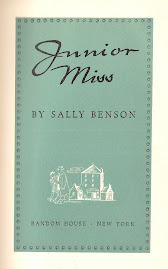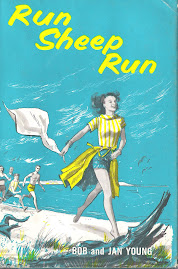 Title: One Small Voice
Title: One Small VoiceAuthors: Bob and Jan Young
Publisher: Julian Messner, 1961
Cover Art: Georgeann Helms
Setting: Granada, a small California town
Provenance: Formerly the property of the Western Kentucky University library
Fun: High school production of HMS Pinafore; fiery Iron Curtain refugee; protest march stopped by the cops; bribery, corruption, intimidation and voter apathy.
Quote: "It seems to us there are a lot of people who don't show any interest in local politics," Walt observed.
"I suppose there are a few," Mayor Keally admitted, "but then people are busy. It appears to me that's a sign of a good administration. There's no need for busy people to vote when they know their city is in good hands, now is there?"
"It is our hope that other young people reading this book will also discover that the study of American Government is not all dreary memorization, politics is not just a field for the isolated few -- but put into practice good citizenship can be a lively, exciting and rewarding experience" -- from the back cover of One Small Voice.
Bob and Jan Young co-wrote a number of popular teen novels which feature ordinary heroines involved in somewhat serious subjects. Reviewers of the day liked them. "In abandoning pat solutions and stereotypes they have sought truth in human reactions and situations, and the result is an inspiration to teenagers of both sections," -- so said Virginia Kirkus.* Their first novel, Across the Tracks, is about Hispanic/Anglo relations in a California town. One Small Voice, takes up, surprisingly enough, small-town political corruption. Gina Morgan goes out on an awkward date with Walt Kennedy. On the way home he hits a parked car. Parked car, which has a scratch on its fender, belongs to a cop, who says for $20 he'll forget the whole thing. When Walt refuses, the situation escalates, Walt is arrested and Walt's father ends up paying $30** to the police chief to forget the whole thing. Encountering apathy and "but-it's-always-been-this-way" among the adults, Walt, Gina and some other high school kids begin a civics project to encourage voter participation and end machine politics in their town. There are ups and downs, mixed in with tryouts for HMS Pinafore (Gina gets Hebe, not Josephine), some baking, having to go to the Spring Formal with sarcastic Tom Peebles, little sister's bicycle accident...but throughout it are some sinister undertones. The driver who hits little sister's bicycle is the brother in law of a cop, who drops by to hint at negligence and a frame-up. Gina's father's boss comes by, too, to hint that her father might lose his job if his daughter continues to stir things up. And their "get-out-the vote" march is abruptly canceled for lack of a permit. But everyone, good guys and bad, keeps their heads in the end, and the election not only has a record voter turn out but results in some (limited) political change, which Gina reasons is about as much as might be expected.
One Small Voice is not completely a civics text, however. Gina's relationship with Walt builds from its bad start into steady dating and her role in Pinafore brings her into the current of high school affairs and gives her confidence. Also, like The Charmed Circle, One Small Voice has a character who is a refugee from the Iron Curtain -- Paul Marchek, a "tall, good-looking Hungarian boy." Paul is there partly to remind everyone of the importance of freedom, but he's also a realistic character, given to losing his temper and making fiery suggestions. ("Let's start an underground movement!") Paul is a reminder that One Small Voice is balanced, in a very prescient way, squarely between the previous decade and the oncoming one. It captures the we're-going-to-change-things feeling of Gina's generation (I can just picture Paul, at any rate, sitting-in at Berkeley) while keeping its feet firmly in Americanism, citizenship and democracy:
Only someone who was very frightened, like Mayor Keally, had to resort to dirty politics. Next Tuesday everyone would have a chance to show his personal feelings at the polls.
*Founder of the Kirkus Reviews and the children's book reviewer of her era.
**More money than it sounds. Gas in 1961 was 30 cents a gallon and you could get a burger in a fast-food restaurant for 15 cents. Another good measurement might be that in Run, Sheep, Run the heroine contemplates spending $35 on a formal dress.











These are so fascinating. I love how you collected the books and gave them a blog. So cool!
ReplyDelete